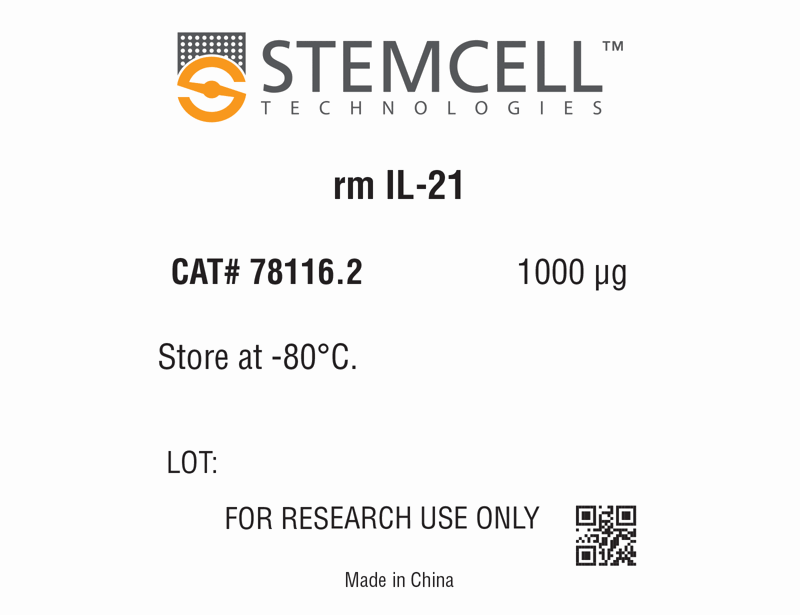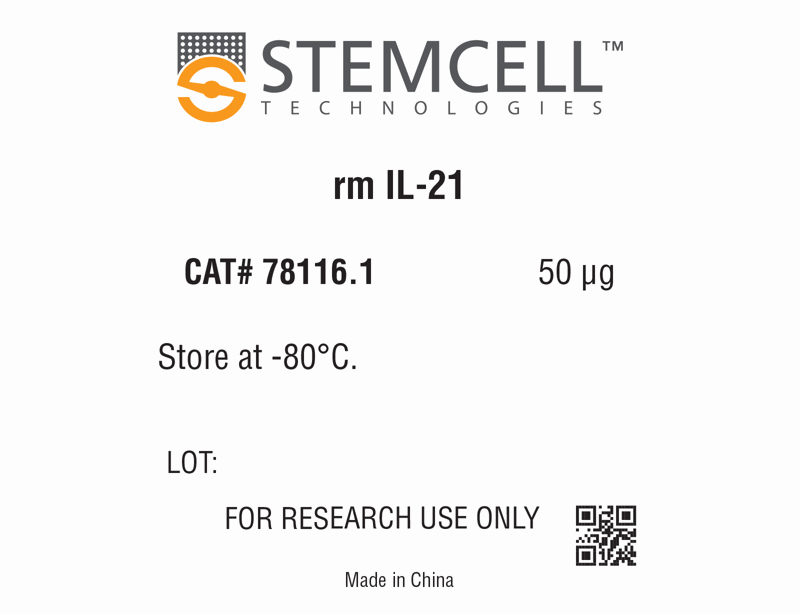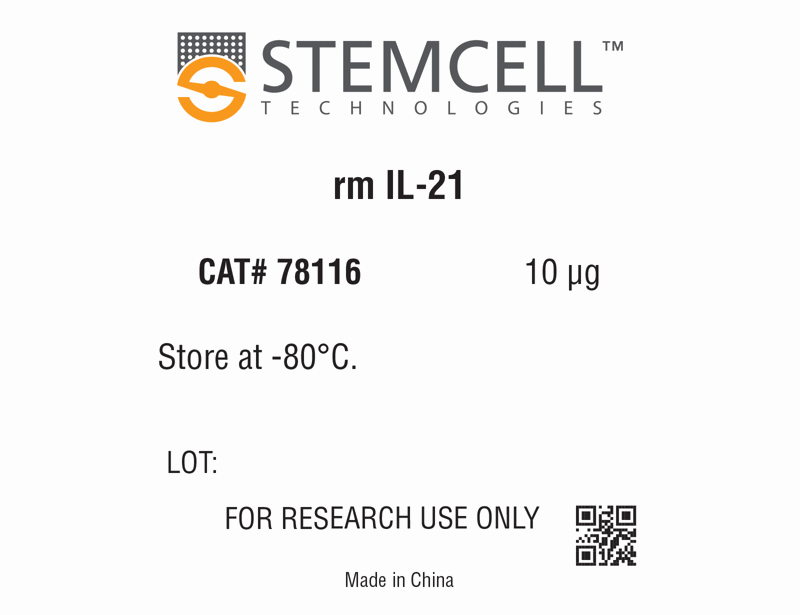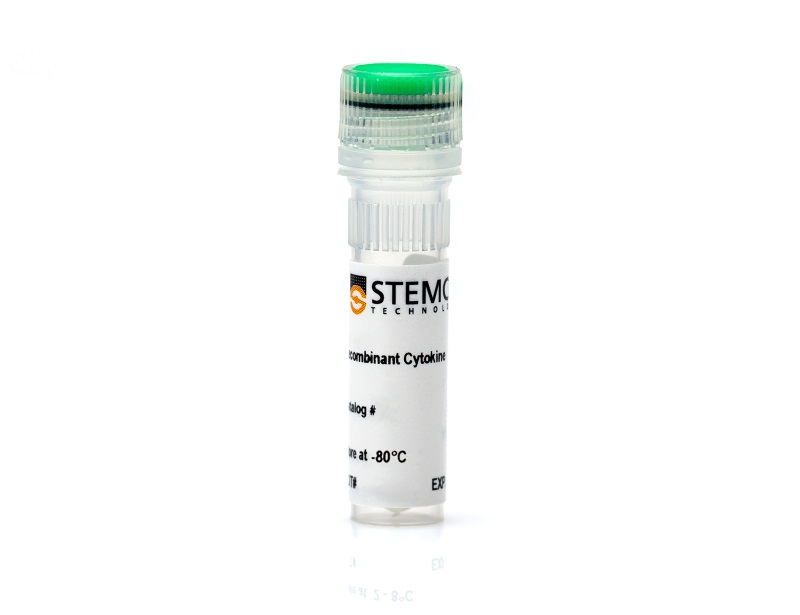Mouse Recombinant IL-21
Interleukin 21
概要
Interleukin 21 (IL-21) is a pleiotropic cytokine that is composed of four α-helical bundles and primarily produced by natural killer T (NKT) cells, T follicular helper (Tfh) cells, and Th17 cells (Spolski & Leonard 2008). IL-21 signals via receptor heterodimerization of IL-21 receptor and IL-2 receptor subunit gamma (IL-2RG or CD132), both of which have a common gamma-chain subunit and activate the JAK/STAT, MAPK, and PI3K pathways (Parrish-Novak et al.; Ozaki et al. 2000; Spolski & Leonard 2014). IL-21 has been shown to have a critical role in regulating immunoglobulin production and differentiation of the pro-inflammatory Th17 population of cells (Ozaki et al. 2002; Nurieva et al.). Additionally, IL-21 specifically sustains CD8+ T cell effector activity and provides a mechanism of CD4+ T cell help during chronic viral infection (Elsaesser et al.). IL-21 signaling was also found critical for the development of type 1 diabetes in non-obese diabetic (NOD) mice (Sutherland et al.) and control of T cell autoimmunity by regulatory B cells (Yoshizaki et al.).
Subtype
Cytokines
Alternative Names
Interleukin-21, Za11
Cell Type
Mesenchymal Stem and Progenitor Cells, NK Cells, T Cells, T Cells, CD4+, T Cells, CD8+, T Cells, Other Subsets
Species
Mouse
Area of Interest
Immunology, Stem Cell Biology
Molecular Weight
15.1 kDa
Purity
≥ 95%
技术资料
| Document Type | 产品名称 | Catalog # | Lot # | 语言 |
|---|---|---|---|---|
| Product Information Sheet | Mouse Recombinant IL-21 | 78116, 78116.1, 78116.2 | All | English |
| Safety Data Sheet | Mouse Recombinant IL-21 | 78116, 78116.1, 78116.2 | All | English |
数据及文献
Data
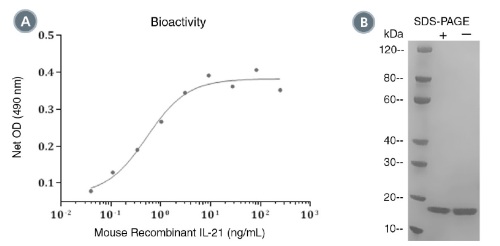
(A) The biological activity of Mouse Recombinant IL-21 was tested by its ability to promote the proliferation of human ANBL-6 cells. Cell proliferation was measured using a fluorometric assay method. The EC50 is defined as the effective concentration of the growth factor at which cell proliferation is at 50% of maximum. The EC50 in the above example is less than 1 ng/mL. (B) 2 μg of Mouse Recombinant IL-21 was resolved with SDS-PAGE under reducing (+) and non-reducing (-) conditions and visualized by Coomassie Blue staining.

